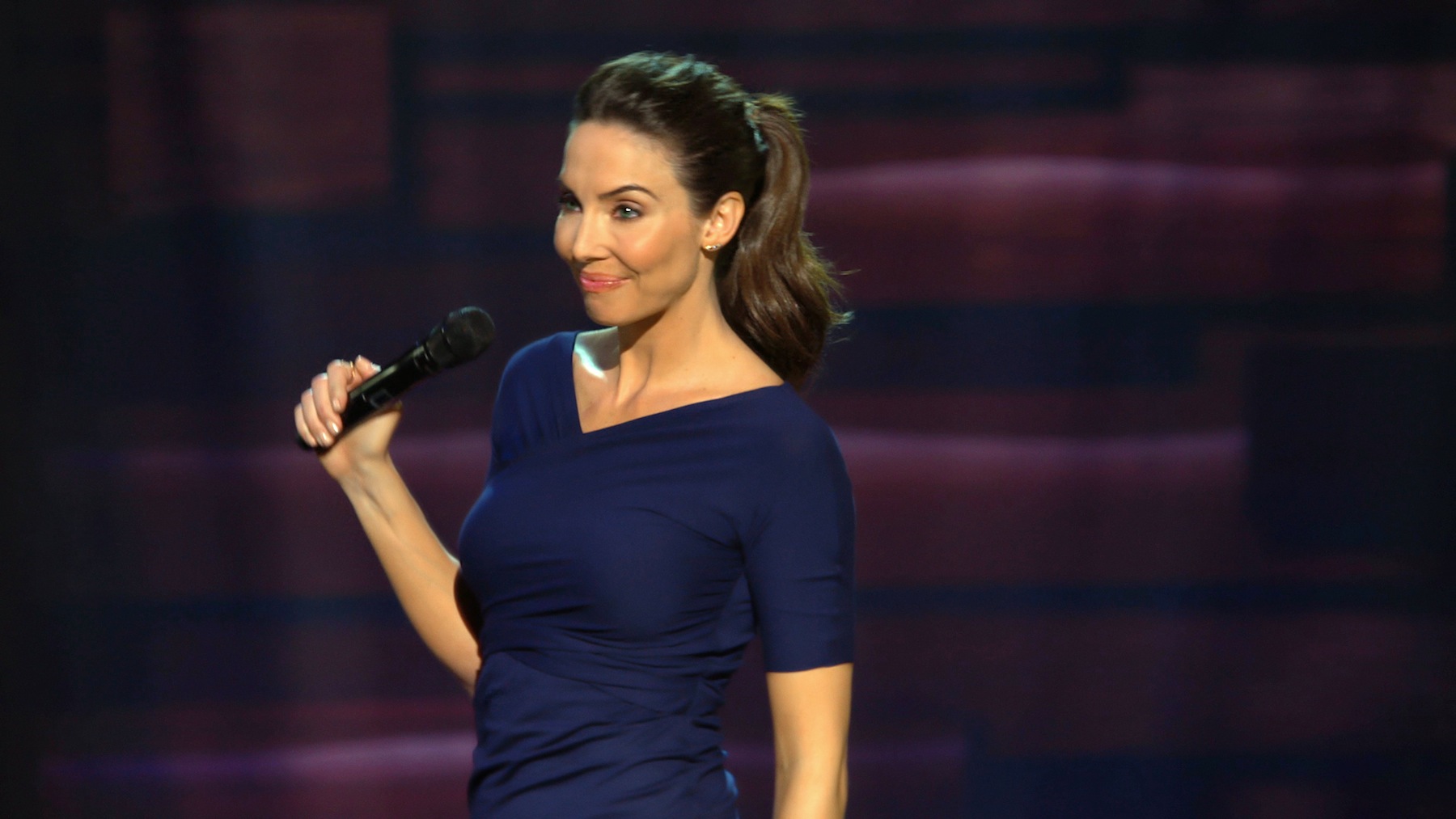
The fictional characters created by comedian Whitney Cummings — whether on CBS’s 2 Broke Girls or NBC’s Whitney — tend to struggle when it comes to love. But the real-life Cummings is eager to say “I love you,” at least in the title of her new one-hour stand-up special, which premieres June 28 on Comedy Central. Here, she talks to TIME about the special, her changing attitudes toward marriage, why she thinks feminism has won and how women being called “crazy” inspired her work:
TIME: Let’s talk about the title, “Whitney Cummings: I Love You.” Is it “I love you, says Whitney Cummings,” or “I love you, Whitney Cummings”?
Cummings: At the end of every show I always say ‘Thank you, I love you’ and so my director was like, Why don’t you call it that?
And with any luck people will say “I love you too.”
Exactly. The nice thing about saying “I love you” is usually someone feels obligated to say it back. People think comedians are sociopathic robots yelling at a crowd. In reality we love you and want you to love us back.
Speaking of love, I saw on Instagram that you got ordained as a minister.
The plot twists in life! I think the big theme of this phase of being a stand-up is that I thought I knew everything in my 20s. In your 30s, all of the sudden you realize you know nothing. The ironic twist is that a friend asked me to officiate her wedding, whereas my whole first special and the TV show I did at NBC were all about how I didn’t believe in marriage.
Has the wedding already happened?
No, it’s in August. I consider myself pretty good at public speaking. Like, I kind of do this for a living. But I’m so nervous.
What about?
The pressure is just so intense to do justice to this moment. If I worked half as hard on my career as I did on this wedding-officiating, I’d probably have accomplished all my goals by now.
A lot of the material in this special is about the differences between men and women.
When you say that I kind of cringe a little bit, because that’s such a fraught territory.
I don’t mean necessarily biological differences…
As a comedian, the edge is my comfort zone. What makes people uncomfortable? What’s the elephant in the room? What are we all struggling with but nobody has the courage to admit? What’s the truth, basically? But when you start saying men and women are different, people get weird. I think feminism has done its job and now you can’t imply that women and men aren’t capable of the same things.
You’re not allowed to say that women are more emotional. That pisses me off when somebody says that. I don’t want someone implying that I’m weak in any way. I didn’t cry until I was 28, you know? It’s made me feel like I have to be so strong and tough all the time. I think that’s caused me a lot of struggle in terms of what I’ve expected to be versus what seriously biologically is going on with me. That was something I wanted to get into. I wanted to play around with the idea of giving women permission to be sensitive again.
It does seem like a lot of differences are from cultural expectations, like what you say in the special about how long it takes women to get ready to go out.
I got to the point where I was like, “No wonder women aren’t achieving as much as men. We have three less hours a day.” When I did the TV show with my male co-star, my call time was 5 a.m. and his was 8! I had to do make-up for three hours. I just started getting so frustrated with the fact that I had to have someone else’s hair snapped into my head every morning. Guys get so mad that I’m taking too long in the bathroom and it’s like, “I’m doing this for you!” I’m not saying I have the power to change it or I’m going to start some revolution. Just be a little nicer to me. Just be a little patient. I can’t feel my feet, I have blisters, I have a string up my butt, I just spent three hours putting pencils in my eyes to try to fit this standard of beauty.
I really think the special was driven by the rage I felt when people call women “crazy.” That really, to me, is like the new c-word. It’s just so dismissive and frustrating and such an ignorant thing to call someone. To me it was like, “Ok, you think we’re crazy, here’s all the things that go into this.”
How so?
We can do all the same stuff with all these insane obstacles and 2 hours less of sleep and the added obstacles of being more sensitive and feeling five different emotions at once. It’s gotten to the point where I feel like we’re allowed to say “uncle.”
The digital album of Cummings’ special is available July 1.
More Must-Reads from TIME
- Donald Trump Is TIME's 2024 Person of the Year
- Why We Chose Trump as Person of the Year
- Is Intermittent Fasting Good or Bad for You?
- The 100 Must-Read Books of 2024
- The 20 Best Christmas TV Episodes
- Column: If Optimism Feels Ridiculous Now, Try Hope
- The Future of Climate Action Is Trade Policy
- Merle Bombardieri Is Helping People Make the Baby Decision
Write to Lily Rothman at lily.rothman@time.com